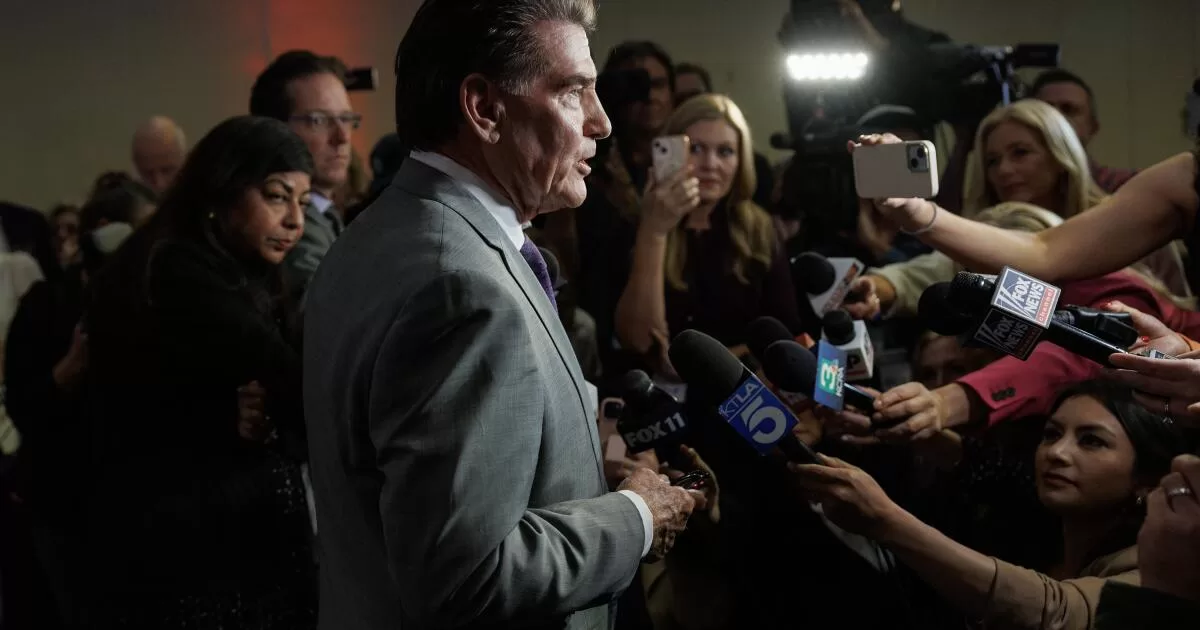A government watchdog group on Monday requested a federal investigation into Republican Senate candidate Steve Garvey, saying the former Dodgers All-Star broke the law by failing to disclose some of his income last year.
End Citizens United, a left-leaning campaign finance reform group, filed a six-page complaint with the Justice Department on Monday afternoon alleging that Garvey omitted information from the annual financial disclosure form that Senate candidates are required by law to complete.
Tiffany Muller, the group’s president, said that Garvey’s apparent omissions in his 2023 financial disclosure amount to “deliberately deceiving California voters.”
“Refusing to provide a complete and truthful personal financial disclosure report is not just a blatant violation of the law but a betrayal of public trust,” she said in a statement. She added that voters “deserve full transparency about his financial dealings in order to identify any conflicts of interest and get a better picture of what he stands to gain in the U.S. Senate.”
Garvey’s campaign confirmed that they had received the complaint, but did not immediately respond to questions.
Garvey, a former first-baseman for the Los Angeles Dodgers and the San Diego Padres, will face Rep. Adam B. Schiff (D-Burbank) in November in the race to fill the seat formerly held by the late Sen. Dianne Feinstein.
Garvey reported earning $121,874 last year, including $93,700 for “memorabilia signings” and “corporate entertainment” from a Nebraska-based marketing company called IPG DXTRA. He also reported up to $130,000 in income from retirement plans, including a Major League Baseball pension.
His disclosure also lists hundreds of thousands of dollars in back taxes, with an 8% interest rate.
Garvey said on last year’s disclosure form that he did not receive more than $200 in income — or any charitable donations made on his behalf — in exchange for speeches, articles or public appearances.
But, the complaint said, Garvey made at least seven public appearances last year that weren’t connected to his campaign, including three in which the organizers told a Slate reporter that Garvey had been paid.
Garvey also has an account on Cameo, the platform where people can buy personalized videos from athletes, actors and other celebrities. The page says it “isn’t available right now,” but was charging $149 per video earlier this year.
Garvey’s Cameo page has several dozen reviews from customers last year, thanking him for videos to celebrate retirements, birthday parties and other milestones. But, the complaint notes, Garvey did not report any income from Cameo.
Senate candidates are also required to disclose all checking and savings accounts held by themselves or their spouses that contain $5,000 or more, or that generate more than $200 in income. Garvey reported none.
The group’s letter, to the Justice Department’s public integrity section, urges swift action “to ensure that Mr. Garvey complies with federal law and that the public is granted full disclosure of Mr. Garvey’s finances as a candidate for the United States Senate.”
